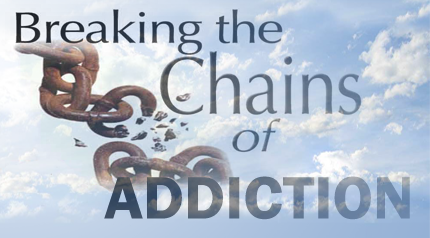Solving substance abuse problems

Solving substance abuse problems will help in breaking the chains of addiction
Solving substance abuse problems: Enigmatic needs
Because of the stigmatization associated with drug addiction, many often conceal their habits and suffer in silence. This suffering is not necessary because treatment is available at convenient and affordable rates at AWAREmed Health and Wellness Resource Center under the leadership of doctor Dalal Akoury MD. At this facility, professional treatment is being offered to all victims of addiction from all walks of life. It is essential that you are aware of all the drug addiction warning signs for you to take immediate remedial action tailored at solving substance abuse problems. It will interest you to know that doctor Akoury is a veteran addiction expert who has for more than two decades now been dedicating all her life and energy in offering addiction solution to the victims who need it the most.
Solving substance abuse problems: Indicators of emerging drug addiction
Together we can help all addiction victims by first being informed of the drug addiction warning signs. This way we will be able to notice if a friend or a loved one is abusing drugs. If you’re worried that somebody you know might be involved in drugs, you need to be very observant on some of the following warning signs:
- Behavioral warning signs of drug abuse
- Physical warning signs of drug abuse
- Psychological warning signs of drug abuse
Solving substance abuse problems: Behavioral signs of drug abuse
- Deterioration in academic or efficiency in place of work. This may also include consistent lateness and absenteeism
- Always being reserved and engaging in secretive or suspicious behaviors
- Frequently topping the list of trouble makers by way of fighting colleagues, causing accidents or rubbing shoulders with the authorities by engaging in illegal activities
- The fellow having all over sudden begun associating with new friends, favorite hangouts, and hobbies
- Unexplained need for money or financial problems, in other words, your friend without a good reason borrows or just steal to get the need met.
Solving substance abuse problems: Physical warning signs
- Strange and unpleasant smells on breath, body, clothing or emanating from their rooms
- Tremors, slurred speech, or impaired coordination
- Sudden drastic weight loss or weight gain
- Deterioration of personal hygiene and physical appearance as well as personal grooming habits
- Changes in appetite or sleep patterns
- Bloodshot eyes, pupils larger or smaller than usual
Solving substance abuse problems: Psychological warning signs of drug abuse
- Appears fearful, anxious, or paranoid, with no reason
- Lack of motivation; appears lethargic or “spaced out”
- Periods of unusual hyperactivity, agitation, or giddiness
- Sudden mood swings, irritability, or angry outbursts
- Unexplained change in personality or attitude
With the above information, we can all pool together to help our societies come out of their addiction cocoons. But take note that sometimes this signs may not necessarily mean that your friend is into drugs. It is, therefore, important that you consult with the experts so that the right steps are taken. On the same note, you can schedule an appointment with doctor Dalal Akoury MD, President, and founder of AWAREmed Health and Wellness Resource Center, for further professional direction on telephone number 843 213 1480 today.
Solving substance abuse problems: Enigmatic needs





